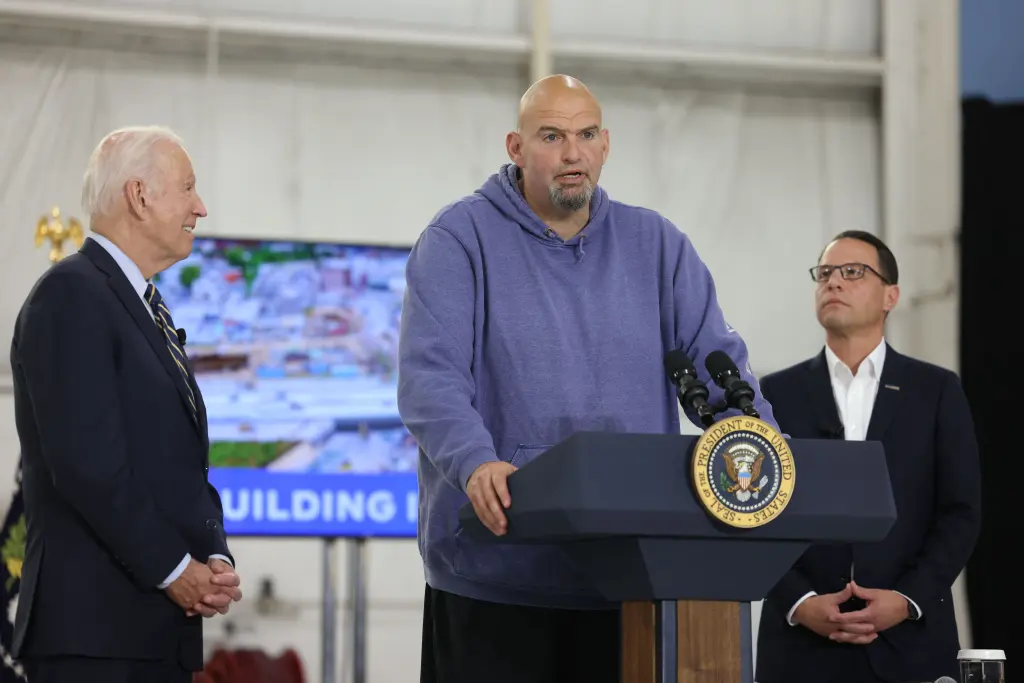Senator John Fetterman Calls Josh Shapiro a “F-ing A-hole” in New Memoir — Reveals How Their Relationship “Never Recovered” After Explosive Zoom Clash
Pennsylvania’s two most powerful Democrats, Senator John Fetterman and Governor Josh Shapiro, were once considered political allies—united by ambition, progressive ideals, and a shared vision for the Keystone State. But as Fetterman reveals in his new memoir Unfettered, their relationship was permanently fractured after a single heated exchange that left both men furious, and one unforgettable phrase echoing across a live microphone.

In a passage that has sent shockwaves through political circles, Fetterman admits he blurted “f-ing a-hole” into a hot mic during a 2020 Zoom hearing while serving as lieutenant governor, directing the insult at then–Attorney General Shapiro. The outburst, Fetterman writes, happened during a contentious meeting of the Pennsylvania Board of Pardons, where the two clashed over whether to recommend clemency for two men serving life sentences.
That moment—captured on a live feed during the pandemic era’s virtual hearings—marked the beginning of a deep divide between two of Pennsylvania’s most prominent Democrats. In his book, Fetterman claims the incident was more than just a slip of the tongue. It was the boiling point of ideological tension, frustration, and distrust that had been building for months. “It wasn’t just about that case,” he writes. “It was about who we were becoming.”
At the time, Shapiro was Pennsylvania’s Attorney General—a careful, calculating prosecutor who had his eyes set on the governor’s office. Fetterman, the state’s blunt, working-class lieutenant governor known for his sweatshirt-and-shorts image, had carved a reputation as an unapologetic advocate for criminal justice reform. Their policy goals often aligned in theory but clashed in execution. “Josh was cautious, deliberate,” Fetterman recalls. “He liked to say he was protecting the system. I thought the system needed to be torn down and rebuilt.”
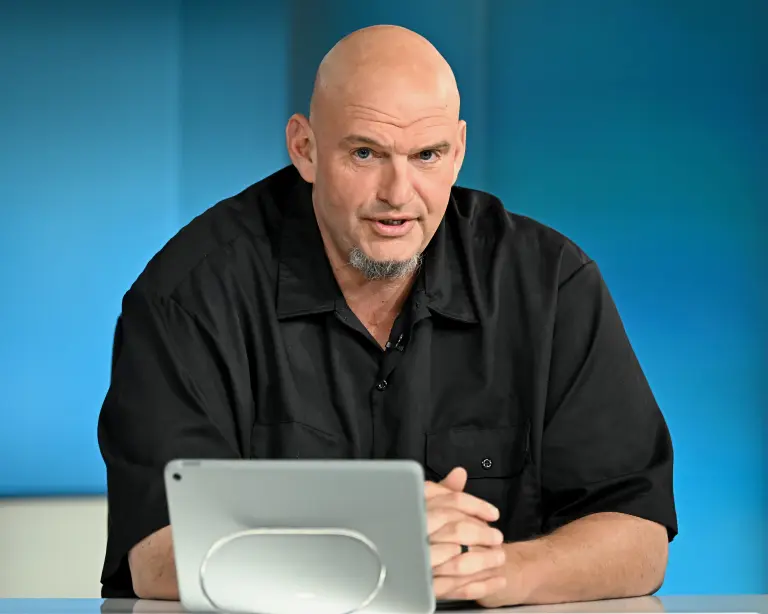
The disagreement came to a head during a meeting over the Horton brothers, Lee and Dennis, who had served decades in prison for a 1993 robbery and fatal shooting. Fetterman pushed aggressively for their release, arguing they had reformed and were victims of an unfair system. Shapiro, however, declined to support commutation, citing legal concerns and the gravity of the crime.
According to Fetterman’s account, the exchange grew increasingly tense. He recalls leaning forward, visibly agitated, shaking his glasses in disbelief as Shapiro explained his vote. “He said no on nearly every case that day,” Fetterman writes. “I felt like he wasn’t listening, like he was just checking boxes.” When the meeting ended, thinking his microphone was muted, Fetterman muttered the words that would forever define their relationship: “f-ing a-hole.”
Within hours, word of the outburst spread among staffers and political aides. While Fetterman issued no public apology, Shapiro reportedly found out and was deeply offended. “That was the day things changed,” Fetterman writes. “He never spoke to me the same way again—and I didn’t blame him.”
Though the Horton brothers were later granted clemency, Fetterman says the personal cost of that victory lingered. “I was right about the Hortons,” he insists. “They walked free and proved every doubt wrong. But I lost a colleague that day—and maybe a friend.”
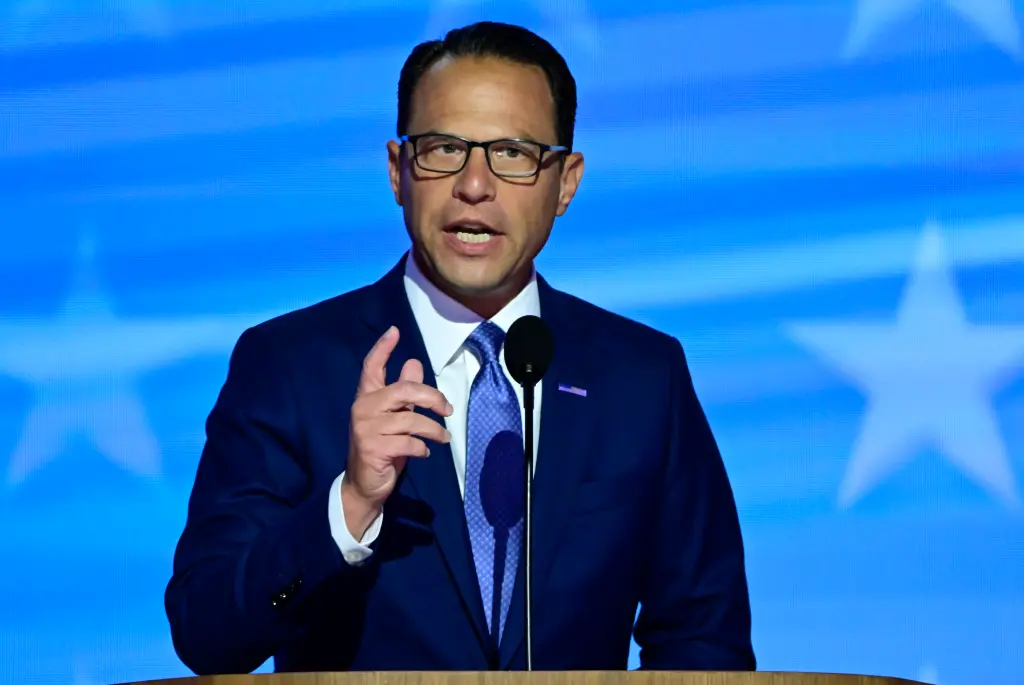
Fetterman’s memoir, which also covers his near-fatal 2022 stroke and ongoing mental health battles, paints the feud as emblematic of a larger struggle within the Democratic Party—a clash between bold reformers and establishment pragmatists. “We both wanted progress,” he writes. “He thought politics could deliver it. I thought only conviction could.”
In Unfettered, Fetterman doesn’t mince words when describing Shapiro’s political style. He calls the governor “calculated” and “overly cautious,” suggesting that his decisions on the Board of Pardons were motivated partly by future political aspirations. “I believed in redemption. He believed in polling,” Fetterman quips in one passage.
But he also admits regret for the personal fallout. “I don’t hate Josh,” he writes. “I just wish we could have had that conversation differently. Maybe it didn’t need to end like that.” Despite his acknowledgment, Fetterman concedes that the relationship “never recovered.” The two men, who once attended campaign events side-by-side, now rarely speak.
The revelation has reignited public discussion about the private tensions between the two Democrats, both of whom hold national profiles. Shapiro, now governor, is seen as a potential future presidential contender; Fetterman, known for his working-class authenticity and unpredictable candor, has become one of the Senate’s most distinctive voices.
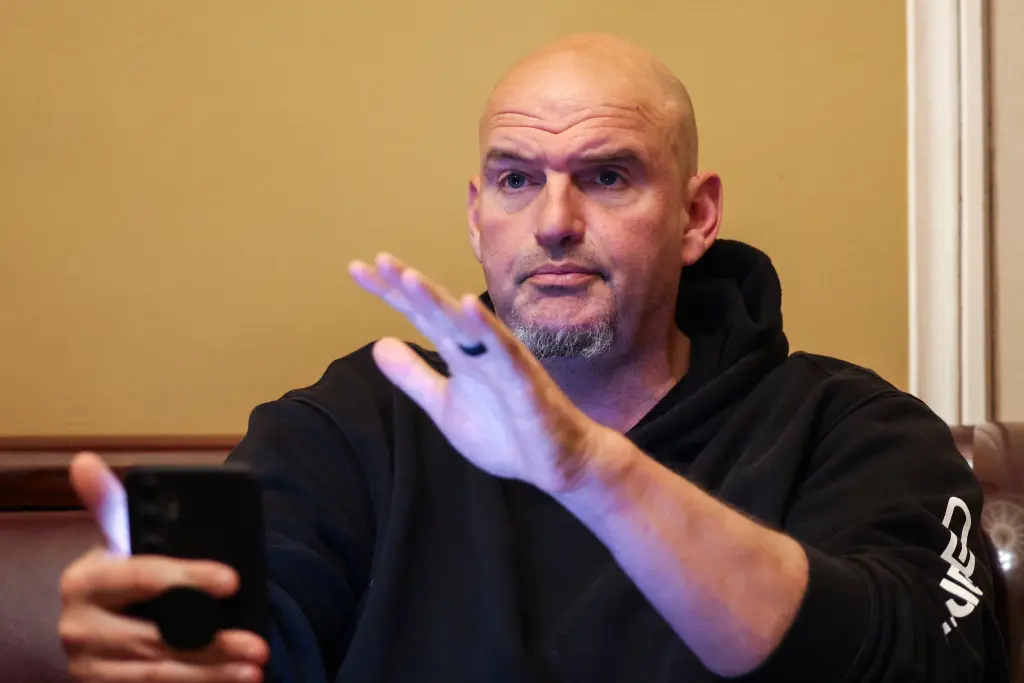
Political insiders say their falling-out has long been an open secret in Harrisburg. “They tolerated each other professionally,” one former aide told The Daily Beast, “but there was zero warmth. Everyone knew there was bad blood—it was just never confirmed publicly until now.”
For Fetterman, the memoir serves not just as confession but as catharsis. Alongside his reflections on Shapiro, he recounts the personal crises that shaped him—his public battle with depression, his struggle to adjust after a life-threatening stroke, and the weight of navigating political life while under constant scrutiny. “There were days I wanted to quit everything,” he writes. “Days I didn’t think I could go on. But somehow, I did.”
Critics of the book see the feud as emblematic of Fetterman’s broader tendency to speak too freely. A Washington Post review described Unfettered as “part memoir, part therapy session,” noting that Fetterman’s bluntness, while refreshing, sometimes overshadows introspection. “It’s the same honesty that endears him to voters,” the review noted, “but it can also burn bridges.”
Others, however, view the memoir as a rare glimpse into the human side of modern politics. The Daily Beast called the account “raw and revealing,” praising Fetterman for “laying bare the realities of ego, ambition, and authenticity in an age of scripted politicians.”
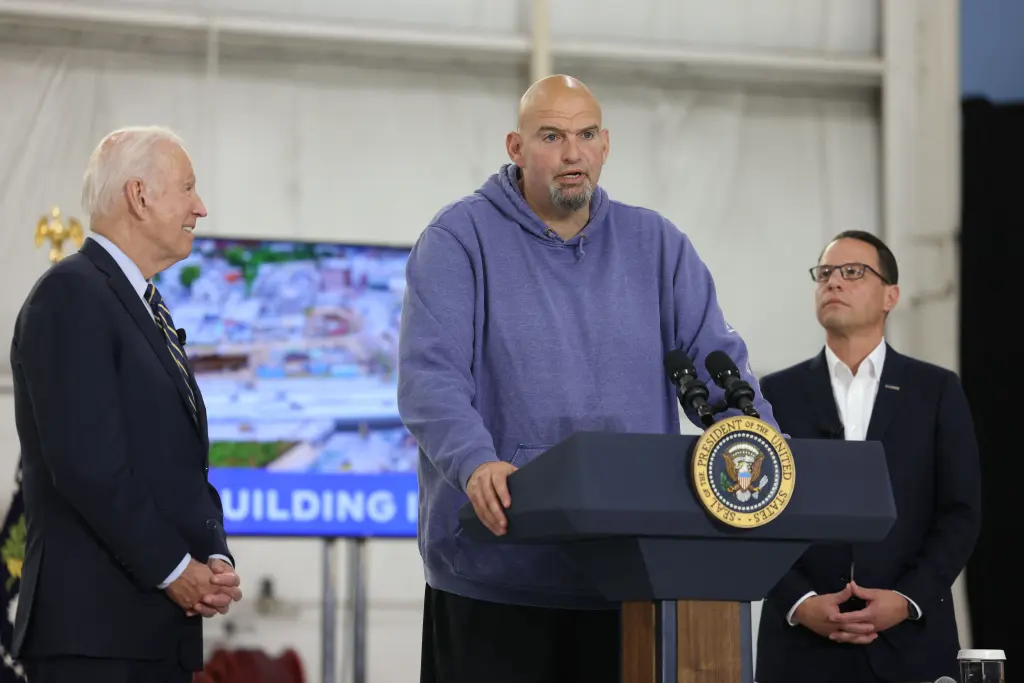
As for Shapiro, he has remained publicly silent about the book and the hot-mic incident. A spokesperson for the governor declined comment when contacted by multiple outlets, saying only that Shapiro “is focused on governing Pennsylvania and delivering results for its people.” Insiders suggest the governor has no interest in reigniting an old feud—particularly one that could distract from his rising political trajectory.
Still, the book’s revelations have already set off ripples in Pennsylvania politics. Both men remain enormously popular within the Democratic base, but their feud underscores a division within the party: one side valuing caution and electability, the other demanding bold moral clarity. For voters, it’s a contrast that may define the next decade of Pennsylvania politics—and perhaps the national stage beyond.
Fetterman ends the chapter on Shapiro not with bitterness but with reflection. “We were both nobodies once,” he writes. “We both wanted to do good. Somewhere along the way, we stopped hearing each other. Maybe that’s what politics does to people—it turns passion into noise.”
The senator concludes that his biggest lesson wasn’t about anger, or ambition, or even politics. It was about forgiveness. “I called him something I shouldn’t have,” he admits. “I let my frustration get the better of me. I’ve spent years trying to make peace with that moment. Maybe writing it down is part of how I finally do.”
Whether that peace will extend to Governor Shapiro remains to be seen. But one thing is certain: the story, now immortalized in Unfettered, has permanently reshaped how two of Pennsylvania’s most powerful Democrats—and perhaps their party—will be remembered.
